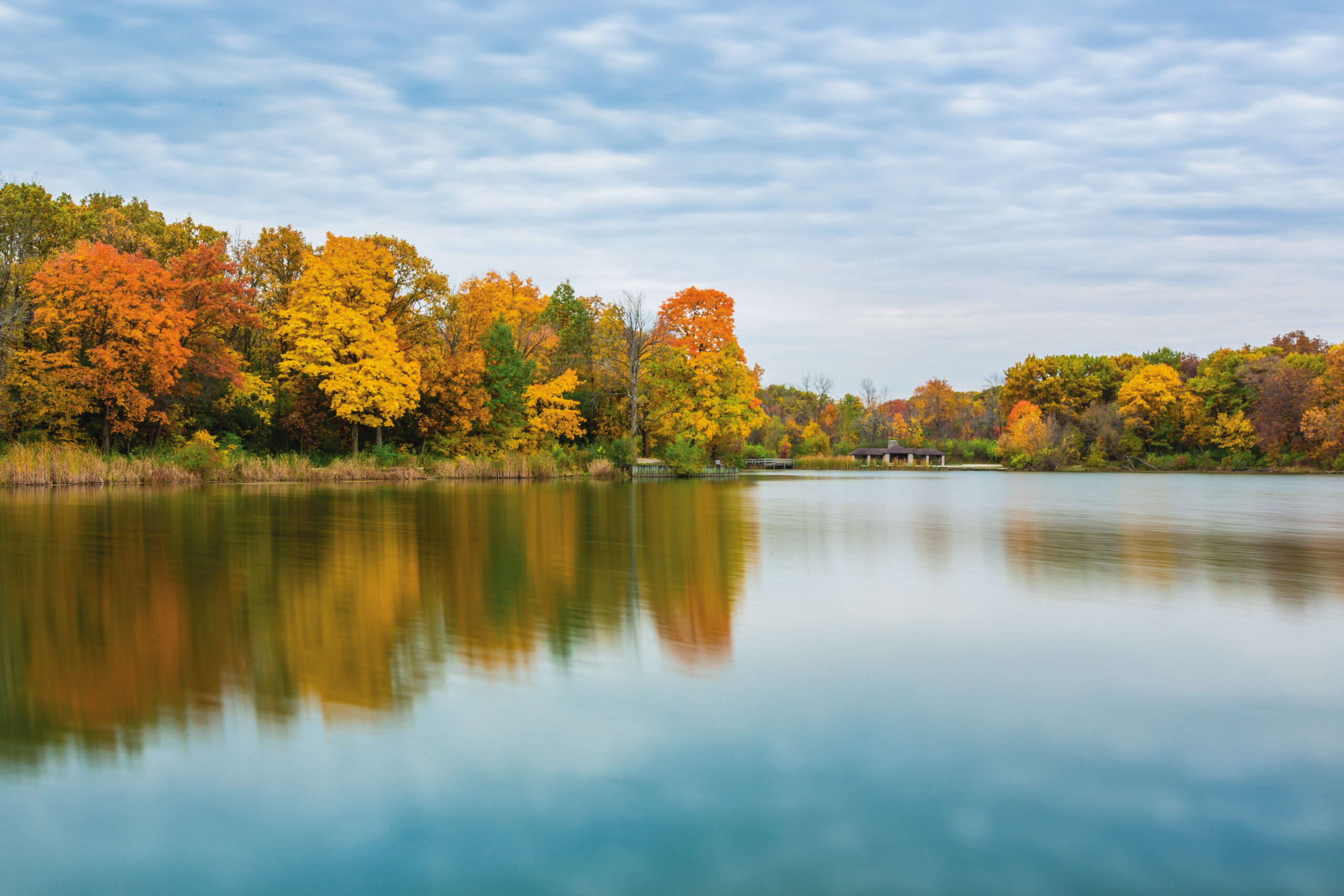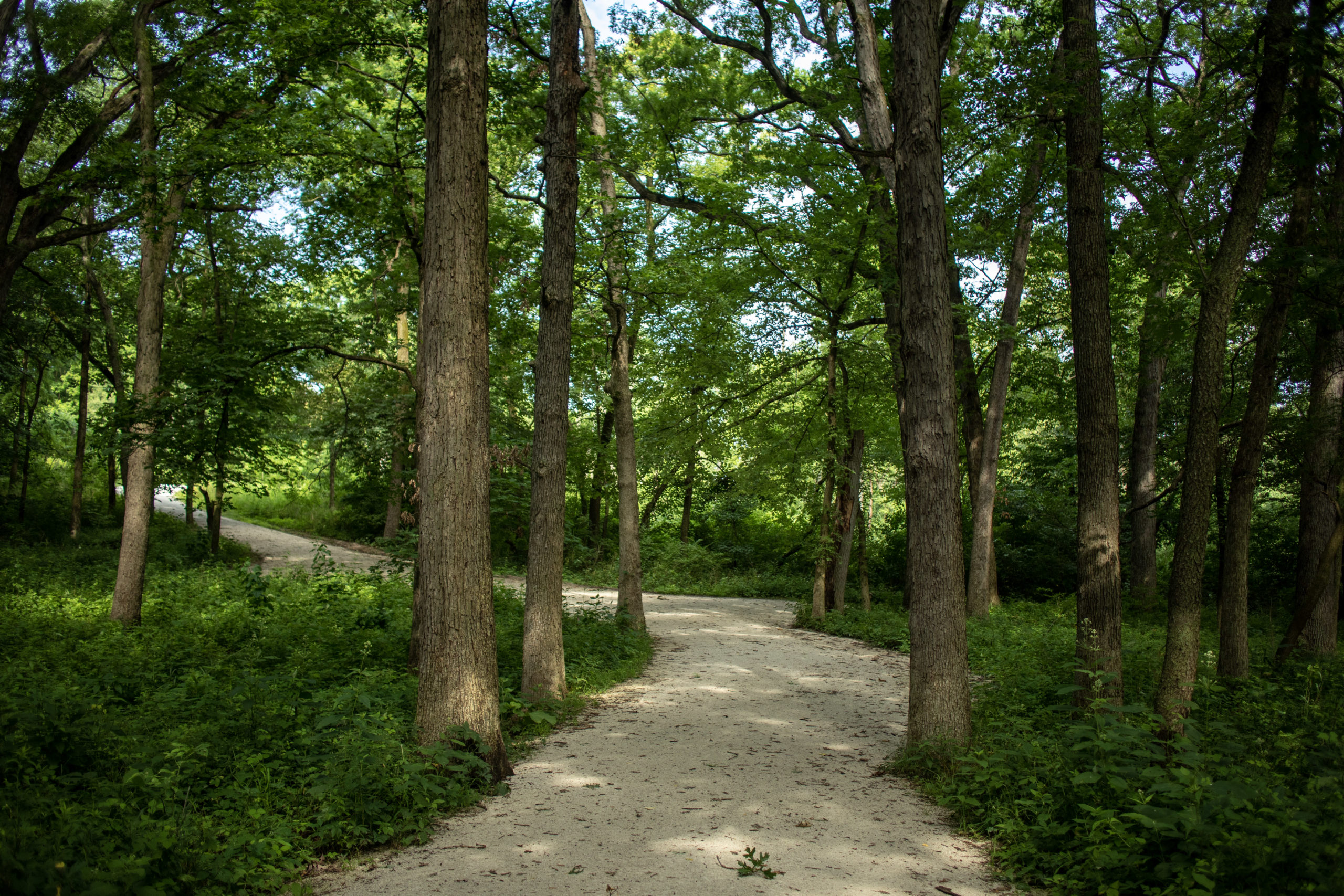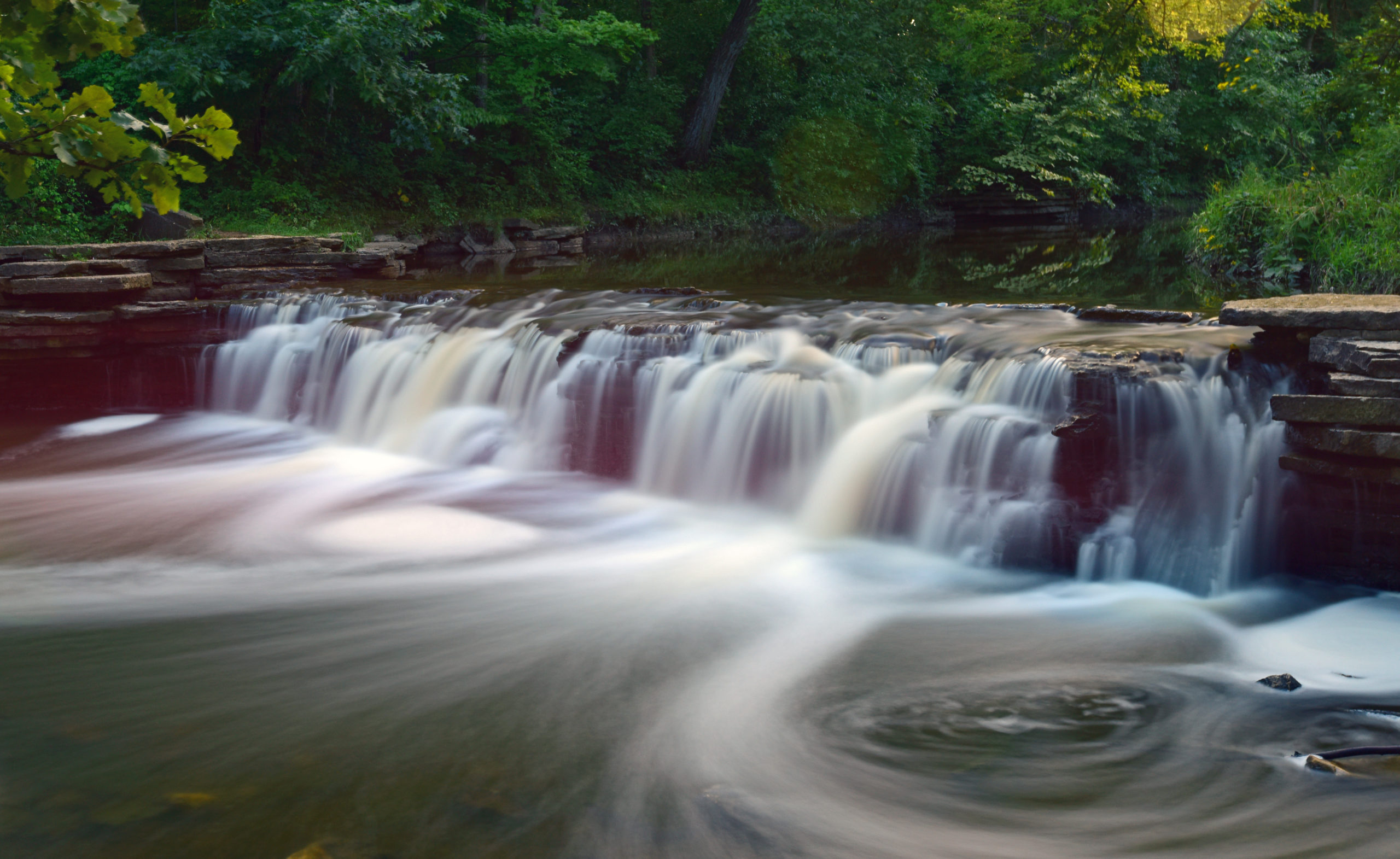
Photo of Herrick Lake, courtesy of the Forest Preserve District of DuPage County
From 2022-2023, the Forest Preserve District of DuPage County partnered with Delta Institute and ECT to develop a plan promoting clean energy, resiliency, and sustainability. The project team focused on creating a comprehensive, equitable, partnership-driven, actionable, fundable, and measurable plan to advance the District’s position as a regional leader in environmental sustainability.
Brief Overview of What We’re Doing
In Summer 2022, the Forest Preserve District of DuPage County (the District) began partnering with Delta Institute (Delta) and Environmental Consulting & Technology, Inc. (ECT). Our team began by exploring multiple sustainability issues to propose a comprehensive, focused, and actionable plan. The Plan has three overarching areas:
- Clean Energy: We focused on assessing the feasibility of a number of energy efficiency, renewable energy, and alternative fuel vehicle strategies to help the District reduce its carbon footprint and greenhouse gas emissions.
- Resiliency: Using Green Infrastructure, our team began exploring plans to help improve and preserve the District’s stormwater management and water quality.
- Sustainability: The project team began reviewing opportunities to help the District advance its other environmental sustainability goals, including identifying new opportunities for addressing waste, recycling, and transportation.
Clean Energy: Efficiency, Renewable, and Alternative Fuel Vehicles
This portion of the report begins with an overview of understanding how greenhouse gas emissions data were collected, including the sources and site location totals for across the District. This report then provides detailed assessments for improving energy efficiency at several District buildings, opportunities for solar energy, and electric vehicle strategies. The opportunities presented in this section demonstrate that the District is well-positioned to increase its usage of clean energy, which will produce long-term cost savings for District operations as well as the environmental benefits it provides.
Resiliency: Green Infrastructure, Stormwater Management, Water Quality, and Nature-Based Designs
This portion of the report addresses strategies to improve and preserve the District’s resiliency against emerging threats that stem from climate change. These strategies range from effective stormwater management through the use of green infrastructure, the District’s water use and irrigation, review of fertilizers, pest management, snow and ice control, carbon sequestration management, biodiversity, land acquisition, land management, and natural resource restoration.
Sustainability: Waste and Transportation
The final section of this report begins by first estimating levels and types of waste generated at the Forest Preserves, followed by a review of how other peer agencies are addressing their waste management and opportunities that the District can consider in the next phase of this work. This section concludes with a review of transportation options available to access the Forest Preserves and the carbon footprint associated with each option—followed by exploring alternatives the District may consider to continue increasing sustainable, accessible transit for all DuPage County residents.

Photo of Fullersburg Woods, courtesy of the Forest Preserve District of DuPage County
Our Findings
In May 2023, our project team presented a Gaps, Barrier, and Opportunities report summarizing our findings. One noteworthy finding was that the District’s activities have created significant reductions in greenhouse gas emissions, sequestering emissions through conservation land management. Ecosystem services eliminate the operations emissions of the District and reduce greenhouse gas emissions by an additional 900 metric tonnes – this is enough to offset approximately 50 DuPage County households’ annual carbon footprints.
Overall, the project team’s findings demonstrate several new opportunities for the District to reduce its carbon footprint even further, increase its resiliency against climate change, and ultimately, continue to invest in long-term restoration, preservation, and stewardship of DuPage County’s Forest Preserves. Our assessment shows that the District is ahead of its peers in minimizing greenhouse gas emissions from the built environment by using efficient equipment and installing renewable energy from solar photovoltaic and solar thermal operations. We highlighted opportunities to continue to improve and considered electrification costs and benefits as part of our report.
Additionally, our partnership found opportunities for the District to reduce an additional 50,607 metric tons of carbon dioxide-equivalent greenhouse gas emissions from the atmosphere annually. According to the U.S. Environmental Protection Agency’s Greenhouse Gas Equivalencies Calculator, this amount is comparable to removing 10,904 gasoline-powered vehicles from the road for one year – or the same amount of emissions that would be produced by burning 56 million pounds of coal.

Photo of Waterfall Glen, courtesy of the Forest Preserve District of DuPage County

